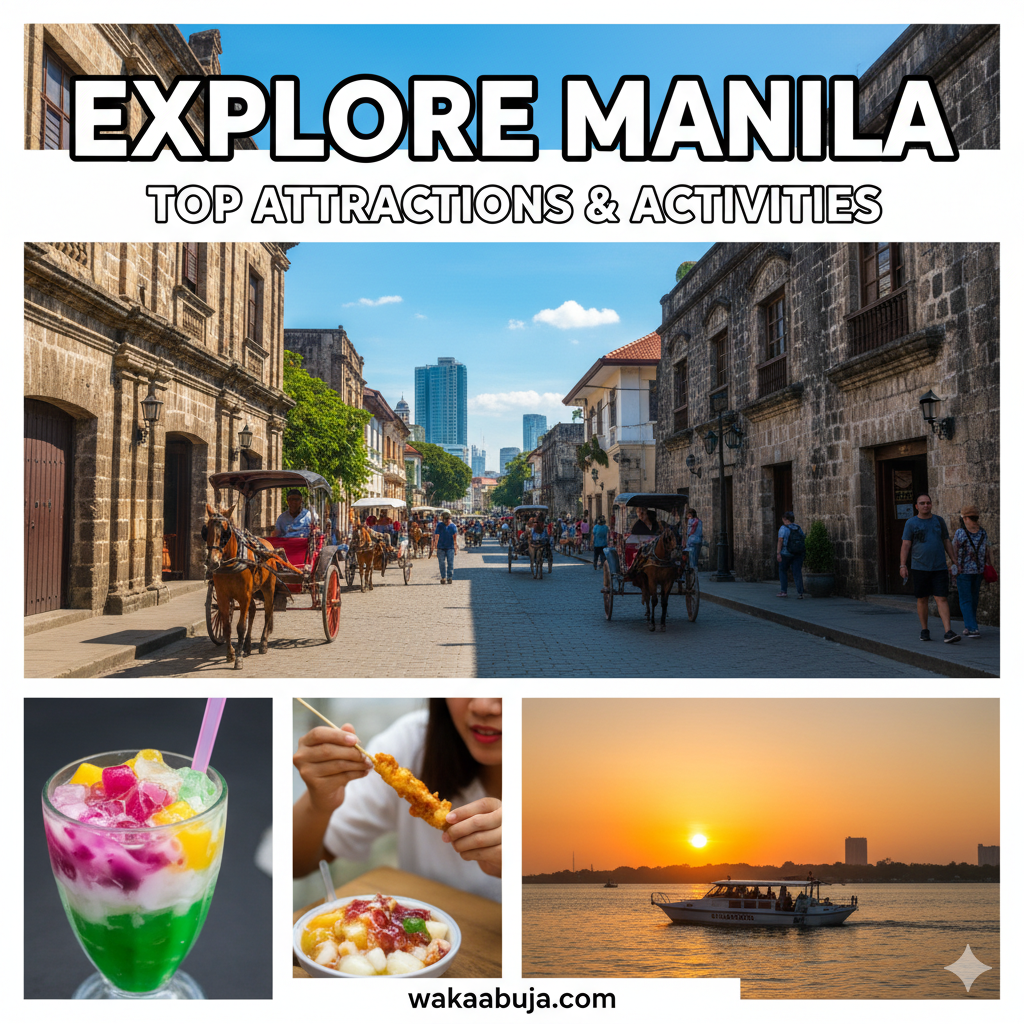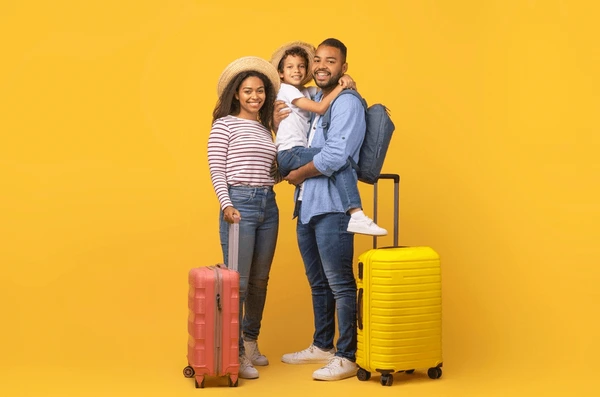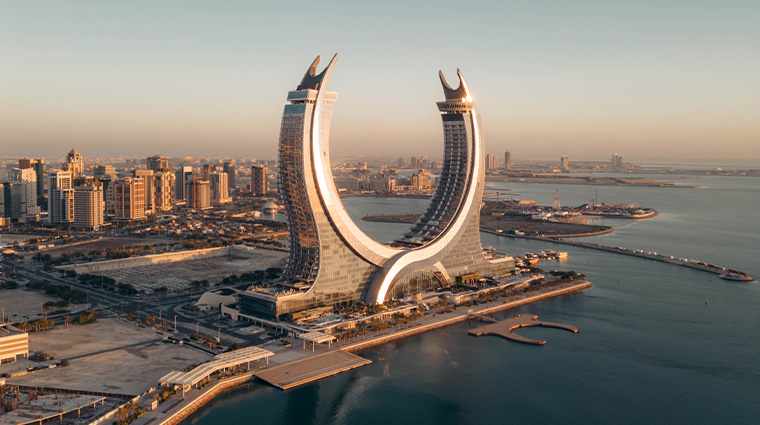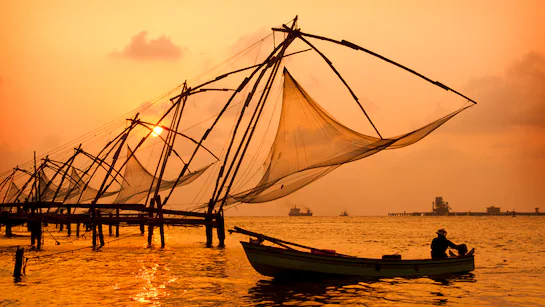Top Attractions and Must-Do Activities in Manila
From my many visits and long walks around Manila, I can say it’s a city that surprises you at every turn. The historical heart, Intramuros, is an absolute treasure—fortified walls, cobbled streets, and centuries-old churches make it a must-see. Walking around here gives a palpable sense of the Philippines’ colonial past and resilience.
But beyond history, vibrant experiences await at Rizal Park, the sprawling green lung of the city, and the colorful Binondo Chinatown, where food lovers should come hungry for authentic street food.
For culture and art enthusiasts, the National Museum Complex showcases Filipino heritage through art, archaeology, and natural history. And the Manila Ocean Park is a hit with families, offering an immersive marine experience.
Intramuros (The Walled City)
Hours: 8:00 AM – 7:00 PM daily
Entry fee: Free to walk around; museum entries vary (around ₱75–₱150).
My tip: Hire a local guide or try the bamboo bike tours for an authentic experience.
Binondo Chinatown Food Crawl
Best time: Late afternoon to evening
What to try: Authentic dim sum, hopia, and fresh lumpia from street vendors or old-school restaurants.
My personal insight: Always ask locals for their favorite stalls – it’s the best way to find hidden gems avoid tourist traps.
National Museum of the Philippines
Opening hours: 10:00 AM – 5:00 PM, closed Mondays
Admission: Free!
Pro tip: Allocate at least 2-3 hours; the art and historical artifacts paint a vivid picture of Filipino identity.
Booking Accommodation: Where to Stay in Manila
Manila offers diverse lodging options from backpacker hostels to luxury hotels, mainly clustered in Makati, Bonifacio Global City (BGC), Ermita, and Malate. During my trips, I leaned towards staying in Makati for its safety, nightlife, and convenient commuting links.
High-End Recommendation: Shangri-La Makati
Price range: ₱9,000 – ₱15,000 per night
Features: Luxurious rooms, pool, multiple dining options, central Makati location.
Why I love it: Perfect comfort after a day exploring, plus a great rooftop bar to unwind.
Mid-Range Option: The Mini Suites Eton Tower Makati
Price range: ₱2,000 – ₱4,000 per night
Benefits: Budget-friendly, clean, centrally located, and includes basic amenities.
My experience: Very comfortable for short stays with easy access to MRT and local eateries.
Typical Costs and Suggested Budgets for Manila Travel
Here’s a reliable breakdown based on personal spend and current market rates in 2025. Manila is very budget-friendly, but you can tailor your experience:
Budget Traveler (Daily)
₱800–₱1,500 (~15–30 USD)
Main expenses: Hostels/guesthouses, street food, jeepney rides
Mid-Range Traveler (Daily)
₱3,000–₱5,000 (~55–90 USD)
Main expenses: Mid-range hotels, dining in cafes/restaurants, taxi or Grab rides
Luxury Traveler (Daily)
₱7,000+ (~130 USD+)
Main expenses: Luxury hotels, fine dining, private tours, exclusive shopping
Smart Money-Saving Tips for Visiting Manila
- Use jeepneys and local buses for cheap transport instead of taxis or Grab rides.
- Eat where locals eat — street vendors and small eateries offer incredible tastes at minimal cost.
- Book accommodations and tours during the off-peak dry season (May to September) for better rates.
- Consider combo tickets or city tours to access multiple attractions at a discount.
Getting Around Manila Efficiently and Safely
Manila’s traffic is notorious, but using the MRT and LRT lines is often the fastest and cheapest way to navigate. I personally rely on them to avoid rush hour gridlocks.
For short distances, jeepneys, tricycles, and pedicabs add local flavor and are affordable. Tourists should always agree on fares upfront.
Ride-hailing apps like Grab offer convenience and safety for visitors new to the city.
Best Time to Visit Manila and How to Get There
The ideal time is during the dry season from December to May, with cooler weather and less rain—perfect for exploring on foot. Avoid the rainy months of June to November due to frequent typhoons and heavy showers.
Manila’s Ninoy Aquino International Airport (MNL) serves the city with international and domestic flights. I found direct flights into MNL from most Asian hubs and many major airlines.
From the airport, airport taxis and Grab rides are easiest. For budget travelers, buses and shuttle services to different parts of the metro are also available.
Tours and Neighborhoods to Explore Beyond the City Center
Manila neighborhoods like Bonifacio Global City (BGC) offer modern malls, artsy spaces, and upscale dining contrasting Intramuros’ historic vibe.
Popular tours I recommend include:
- Manila Bay sunset cruises
- Day trips to Tagaytay for a cooler climate and Taal Volcano views
- Cultural food tours of Binondo and Quiapo markets
Personal Insights: How Long to Stay & Staying Safe in Manila
For a well-rounded Manila visit, 4-5 days is ideal—enough to absorb historic sites, sample local food scenes, and feel the urban energy without feeling rushed.
Regarding safety, stay alert in crowded places and avoid poorly lit streets at night. Use Grab or trusted taxis rather than hailing rides off the street. I always keep a local SIM card for easy communication and emergency contacts.
Emergency & Essential Contacts
- Police: 117 or +63 2 8527 8481
- Medical Emergencies: +63 2 911-7654
- Tourist Police: +63 2 527-5312
- Embassy Contacts: Check your country’s embassy website for latest info
Weighing Pros and Cons of Visiting Manila
Pros
- Rich history with vibrant cultural experiences
- Delicious and affordable local cuisine
- Warm, friendly locals and diverse neighborhoods
- Budget-friendly options for all travelers
Cons
- Traffic congestion can be intense during peak hours
- Air pollution and noise in some areas
- Safety concerns require vigilance in unfamiliar areas
- Weather extremes during the rainy season
Frequently Asked Questions About Visiting Manila
Is Manila safe for solo travelers?
Yes, with typical urban precautions — stay in well-populated areas, avoid flashing valuables, and use reputable transport options like Grab.
What visa do I need to enter the Philippines?
This depends on your nationality. Many countries have visa-free entry for 30 days. Check the official embassy site for the latest info.
How do I travel between Manila airports and the city?
Taxi, Grab, and airport shuttles are available. Traffic varies, so allow extra time if heading to or from the airport during rush hours.
What are must-try foods in Manila?
Don’t miss adobo, sinigang, halo-halo, lechon, and street snacks like kwek-kwek and taho for a real taste of local cuisine.




